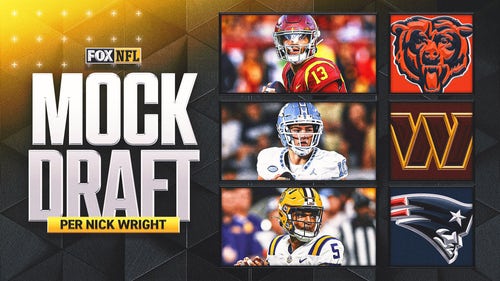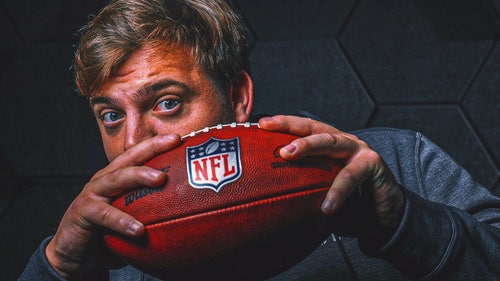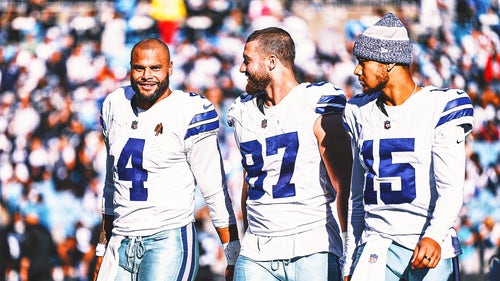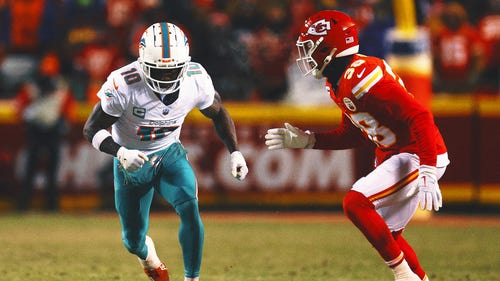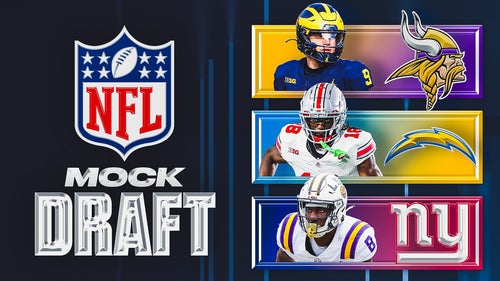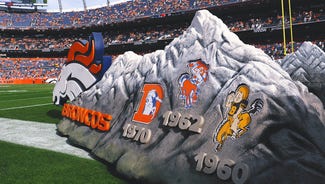
Hazing rites can go wrong — badly
Over the course of my football career, I have witnessed — and participated in — the making and breaking of countless young men.
The emphasis on toughness — the type of toughness coaches drill into players' brains/DNA from their first days in Pop Warner ball — can become numbing. Physical toughness, mental toughness, be strong, don’t break, break them, impose your will.
In the midst of all this tough talk, we as football players start ignoring that inner voice — the inner voice that says . . . stop . . . wait . . . I need something.
It’s the inner voice that is frowned upon on the gridiron, but you need it in everyday life to be a normal, functioning, healthy person.
Since the day I started playing football at age 14 I was told to have thick skin and that I couldn’t be sensitive. Every team I have ever played for said you can’t be a baby rabbit, on the field . . . or in the locker room . . . or the lunch room. If a player was emotional or sensitive, he was often referred to as having "skin like a baby rabbit" whose flesh can be easily torn apart.
You have to have skin like an armadillo. Armadillos, known for their tough, impenetrable skin, was the term of choice used most by coaches when referring to the mindset of tough-minded players they wanted to mold us into.
I understand you need to be tough on the football field, and you have to take coaching advice and critiques as a tool to make you a better football player and not as a personal attack.But there needs to be a better way to condition athletes to let them know that this mentality ends when you walk off the football field and when you leave the meeting room.
It’s OK to say, "I need help." It’s OK to acknowledge that inner voice that says, "I have feelings" or "Those words hurt me."
I commend players like Miami Dolphins offensive tackle Jonathan Martin, currently on a leave of absence from the team over reports of bullying by teammates, and former Oakland Raiders linebacker Rolando McClain, who walked away from the game to ensure the security of the person — and not the football player.
Several NFL sources I talked to shed some light on the incident that drove Martin to leave his team this week. I was told that the Dolphins are not a team that participates in hazing. I was told the Dolphins play a prank at lunch on whoever is the last player into the lunch room, in which all the players get up from that table and move. An NFL source said the straw that broke the camel’s back for Martin came when he went into the lunch room and sat down, then all the players jokingly got up from his table and moved.
As silly as that prank may sound, we don’t know what led up to it or exactly what Martin’s teammates put him through in his first 1½ seasons, beyond a few details reported by FOX Sports’ Alex Marvez. We also have to know and understand that we each have a different tolerance level and what one person might find acceptable, another might feel pushed too far.
The lesson is to put the person first. If you can put the person first, in turn you will be better at everything you do. As a player, there are 10 to 15 coaches and scouts watching at all times. Throw in 60 teammates that you spend eight hours a day with almost every day, who you not only work with but also are often competing against for a job. Trying to do this all harmoniously can often times become quite challenging.
Professional sports are a high-pressure situation, and when you are dealing with so many moving parts they can become a powder keg.
I remember in 2006 as a Chicago Bear, we would have our traditional hazing in summer camp. All the rookie offensive linemen were going to get wacky and wonky haircuts that ultimately would result in buzzing all their hair off.
The entire rookie squad was going to get woken up at some point between 2 and 5 a.m. and run laps around the dorm room in whatever attire they were sleeping in (hopefully not naked).
You were going to have to sing to the team, you were going to have to tell jokes. For those players who fought, it was going to be brought back to you tenfold because veteran players didn’t like any type of resistance — especially since they all they went through that same hazing ritual when they entered the NFL.
Once during a two-a-day practice session one unruly rookie was putting up a pretty good fight against the vets and didn’t want to partake in any of our entertainment. I did participate in my fair share of hazing, so I am not immune to the bug myself.
This brave rookie had no idea what he was in for.
Someone quickly grabbed the plastic wrap, which is used to wrap ice bags onto injuries and is in every training room. The rookie quickly was bound like a mummy, his entire body except his head. From there, he was carried by three or four guys outside to the ice tub area and thrown into an ice bath.
With his arms and legs bound he was basically stuck in the ice bath with no way to get out. Everyone clamored around and starting laughing.
It started to become a mob mentality.
By this time, we had wrangled a few other rookies and began to spray Gatorade, water and baby powder on them. This is actually a normal occurrence.
For a guy’s birthday, the newbies would be wrapped upside down around the goal post and the same ritual would occur. But in this case we started dunking the rookie in the water. An ice bath is torture enough, but to be fully submerged head to toe in 40-degree water takes the air right out of your lungs.
The water bottles were spraying, the baby powder was flowing and 15 guys were yelling and screaming. We had gotten got out of hand.
I might have dunked the rookie, my teammate, my co-worker, one of my buddies one or two times, and all of a sudden I came back to reality. That inner voice went off in my head and I thought to myself, "What the hell are we doing?"
Honestly, I scared myself. A playful situation can cross the line from fun to going way too far.
It already had crossed the line for the young man being hazed, but when would the mob realize that this way to dangerous?
I immediately stopped and ended the parade. I pulled him out of the tub and said you’ve had enough. I helped him get unwrapped and gave him a towel to help him warm up.
That situation didn’t stop me from hazing teammates again, but it certainly made me cognizant of going too far. It also made me aware that what might be OK for me might be too far for another person’s boundaries or space.
When the stone apparently broke and crumbled for Martin, why were there not pieces in place to hold it together? In this case, Martin left for a place that was safe and where his voice was heard.
And if you are truly honest, what would you do?







































































































































